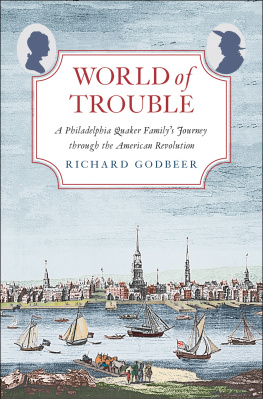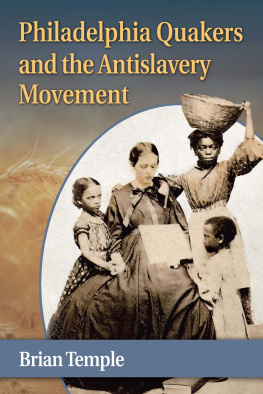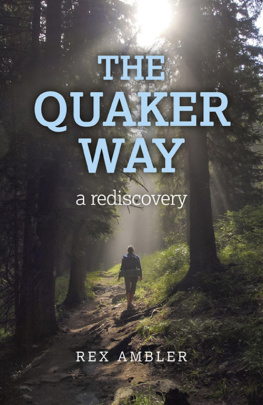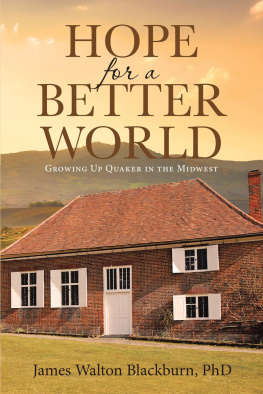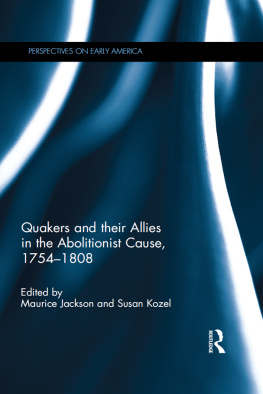W ORLD OF T ROUBLE
THE LEWIS WALPOLE SERIES IN EIGHTEENTH-CENTURY CULTURE AND HISTORY
The Lewis Walpole Series, published by Yale University Press with the aid of the Annie Burr Lewis Fund, is dedicated to the culture and history of the long eighteenth century (from the Glorious Revolution to the accession of Queen Victoria). It welcomes work in a variety of fields, including literature and history, the visual arts, political philosophy, music, legal history, and the history of science. In addition to original scholarly work, the series publishes new editions and translations of writing from the period, as well as reprints of major books that are currently unavailable. Though the majority of books in the series will probably concentrate on Great Britain and the Continent, the range of our geographical interests is as wide as Horace Walpoles.

Published with assistance from the Annie Burr Lewis Fund.
Copyright 2019 by Richard Godbeer.
All rights reserved.
This book may not be reproduced, in whole or in part, including illustrations, in any form (beyond that copying permitted by Sections 107 and 108 of the U.S. Copyright Law and except by reviewers for the public press), without written permission from the publishers.
Yale University Press books may be purchased in quantity for educational, business, or promotional use. For information, please e-mail (U.K. office).
Set in Scala type by IDS Infotech Ltd., Chandigarh, India. Printed in the United States of America.
Library of Congress Control Number: 2019938842
ISBN 978-0-300-21998-2 (hardcover : alk. paper)
A catalogue record for this book is available from the British Library.
This paper meets the requirements of ANSI/NISO Z39.48-1992 (Permanence of Paper).
10 9 8 7 6 5 4 3 2 1
To Margaret and Grace,
For believing in me, and the Drinkers
C ONTENTS
A CKNOWLEDGMENTS
It is only right that I begin by expressing my gratitude to Elizabeth Sandwith Drinker and Henry Drinker for all they have taught me about the world that they moved in. They cannot have anticipated that their diaries and letters would survive so far into the future, or that just over two centuries after their deaths a historian who was born in England but lives in the United States would spend the better part of a decade reconstructing their experience of the revolutionary period. I doubt that they would approve of everything I have written about them, but I hope they would recognize at least part of themselves in the pages that follow and even more that they would think I have done my best to tell their story with authenticity and respect. Their children, grandchildren, and descendants into the late twentieth century took good care of family papers that could so easily have been lost, and eventually handed them over to the care of modern archivists. This book would not have been possible without their commitment to preserving Elizabeth and Henrys writings for posterity.
One scholar in particular has played a crucial role in making Elizabeth Drinkers diary accessible to all students of the revolutionary period. Anyone with an interest in the Drinkers owes a huge debt to Elaine Forman Crane, whose meticulously edited edition of Elizabeth Drinkers diary contains a wealth of information about the Drinker family and Philadelphia in the late eighteenth century. While working on this book, I have often given silent thanks to Elaine Crane and her team for their herculean efforts, and it is a great pleasure now to recognize their work. During my research, I have also come to appreciate afresh the depth of knowledge that archivists accumulate as they sift through collections to compile readers guides and extract items requested by visiting scholars. Steve Smith, Sarah Heim, and David Haugaard at the Historical Society of Pennsylvania have been particularly generous of their time and expertise. I am also grateful to the staff at Swarthmore Colleges Friends Historical Library, the Quaker and Special Collections division at the Haverford College Libraries, the American Philosophical Society, the Library Company of Philadelphia, and the Library of Congress.
I first encountered the Drinkers when I served on my very first doctoral dissertation committee in the early 1990s. That gave me the opportunity to work with and learn from Debra ONeal, who was writing a dissertation about the transformation of womens domestic labor in eighteenth-century Philadelphia. Debbies subsequent illness and premature death prevented her turning that dissertation into a book, which was a great loss to the field. The chapter in this book on Elizabeth Drinkers relationship with her servants is much indebted to my conversations many years ago with Debbie. I remember at the time wondering what role, if any, Elizabeths husband had in the management of the Drinkers domestic staff. Elizabeth gives us occasional hints in her diary about Henrys involvement, but it was when I stumbled on Henry Drinkers letter books at the Pennsylvania Historical Society, while researching for a book on male friendship, that I realized I could write a book in which both Elizabeth and Henry had equal voices. So many books owe their inception to such moments of accidental discovery, but often we are sensitized to items that we happen upon by past conversations, and in this case it was Debbie whose voice I could hear egging me on as I flicked through the catalog cards with increasing excitement.
Several institutions gave generous financial support that enabled me to spend time in Philadelphia combing through archival material. I was fortunate to receive a Franklin Research Grant from the American Philosophical Society, a Society for Historians of the Early American Republic Fellowship to work at the Library Company of Philadelphia and the Historical Society of Pennsylvania, and a University of Miami Provost Research Award, alongside ongoing support from the Department of History and the College of Arts and Sciences at the University of Miami, and the College of Humanities and Sciences at Virginia Commonwealth University. A Research Fellowship at the University of Miamis Center for the Humanities gave me a semester away from teaching in fall 2013, during which I wrote my first draft chapter about the Drinkers. At Virginia Commonwealth University, Dean James Coleman, Senior Associate Dean Alison Baski, and Associate Dean for Research Scott Gronert made sure that I had time to continue writing alongside my work as founding Director of the Humanities Research Center. My first administrative coordinator at the center, Gail Bartee Cantor, did a fine job of protecting me from interruption during writing sessions, and her successor, Michael Means, has been equally understanding of my need to set aside time for the Drinkers. I am grateful to Michael as well as Tom Woodward and Matt Roberts at VCUs ALT Lab for their help in formatting the three family trees, and to Frankie Mastrangelo for her help in formatting the map of the Drinkers neighborhood.
As always, colleagues and friends have been generous companions on my journey with the Drinkers, providing much-needed advice as well as support and good cheer. The Premodern Society and Culture research group at the Humanities Research Center here in Richmond has been a wonderful forum for discussion of work-in-progress that manages somehow to combine rigorous critique with unfailing good humor and generosity of spirit. I am also grateful to members of the Omohundro Institute of Early American History and Culture Colloquium, especially Karin Wulf, the Fall Line Early Americanists, especially Douglas Winiarski, and the Triangle Early American Seminar at the National Humanities Center, especially Kathleen DuVal, for their comments on draft chapters. Other helpful conversations took place at a session of the 2011 annual meeting of the American Society for Eighteenth-Century Studies in Boston, entitled Religion, War, and Nation: Philadelphian Quakers in the Revolutionary Atlantic, at a session of the 2012 annual conference of the Omohundro Institute of Early American History and Culture in Pasadena, entitled Inward Vision and Outward Struggle: Quaker Reflective Practice and Political Contest in the Early Modern Atlantic World, and at sessions on motherhood and the female body, romantic courtship, and microhistory at the 2014, 2015, and 2016 annual meetings of the Society for Historians of the Early American Republic in Philadelphia, Raleigh, and New Haven, respectively. My special thanks to Wendy Lucas, Donna Rilling, and Ned Donoghue for alerting me to sources that I might otherwise have missed.
Next page
